
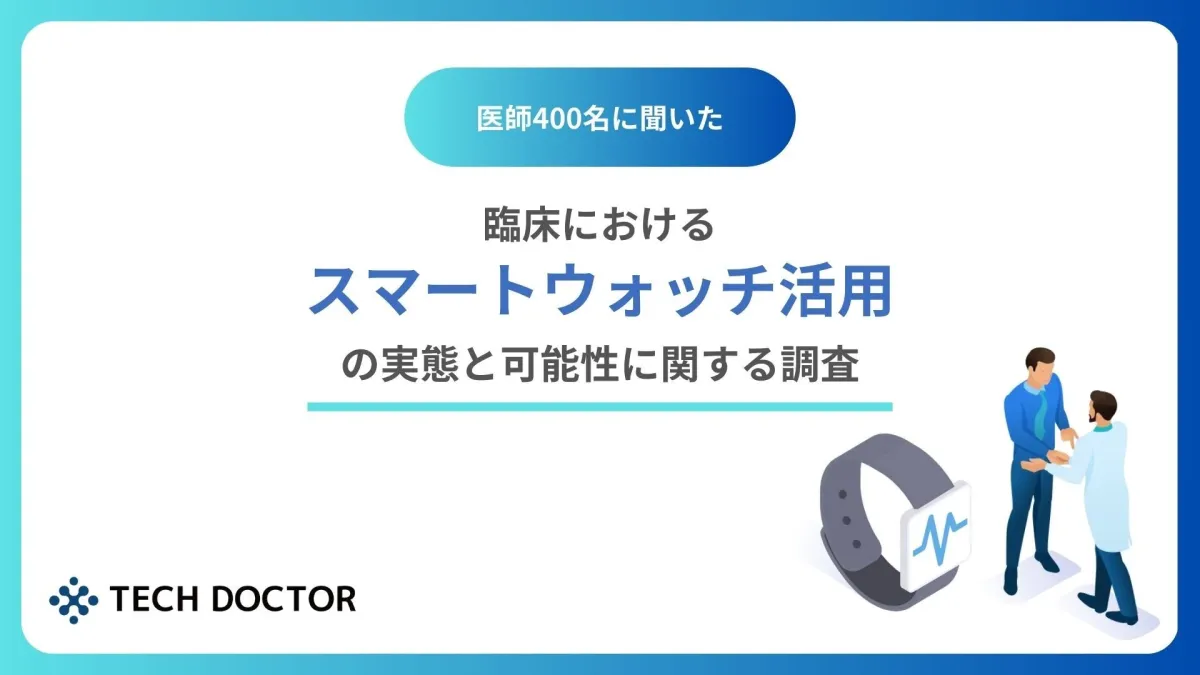
Exploring the Future of Smartwatches in Medical Practice: Insights from a Survey of 400 Physicians
Introduction
In a significant development within the digital healthcare landscape, Tech Doctor, led by CEO Kazushi Minato, conducted a survey involving 400 physicians to examine the integration and future potential of smartwatches in medical practice. With the growing acceptance of smartwatches like the Apple Watch in medical settings—some functions having already received regulatory approval—these devices provide a new avenue for patient health monitoring through the collection of vital data.
Background
The convergence of smartwatches and healthcare has seen considerable growth in recent years. The ability of wearable devices to gather real-time health data, such as heart rates and activity levels, is transforming the approach to patient care, bridging the gap between daily health management and clinical insights. This not only enhances patient experiences by reflecting their health status in consultations but also enables healthcare professionals to objectively assess changes in health conditions, which can improve diagnosis efficiency and reduce workload.
Recognizing this shift, Tech Doctor aimed to understand how physicians are currently using these devices and what their expectations are for future applications in clinical settings.
Survey Summary
The survey, conducted between March 7 to March 14, 2025, yielded insights from responses with a focus on physicians interested in the medical applications of smartwatches. Here are the key findings:
- - Majority Support: Approximately 70% of respondents expressed a positive attitude toward the use of smartwatches in their practice—30% had used them, and 40% showed interest in future utilization.
- - Areas of Use: Usage was particularly noted in general internal medicine and cardiology, while orthopedics and psychiatry also showed potential interest.
- - Expectations: Physicians anticipate benefits in diagnostic support, early detection of health issues, and ongoing health monitoring, although issues of data accuracy and operational infrastructure remain concerns.
Notable Findings
1. Current Usage & Future Intentions: Among respondents, 31% have previously utilized smartwatches in clinical practice, while 42% expressed interest in future use. This reflects a growing trend among physicians to embrace technology in healthcare.
2. Specialties Utilizing Smartwatches: The data indicated that cardiologists and internists are at the forefront of adopting this technology, especially useful for obtaining reliable heart-related metrics. The corresponding rise in patient inquiries suggests heightened public awareness about heart conditions.
3. Primary Objectives: The major reasons physicians cited for implementing smartwatches include:
- Diagnostic Assistance: Enhancing the diagnostic process by providing concrete health data to complement patient narratives.
- Early Detection: Identifying risk factors sooner through continuous health monitoring.
- Health Monitoring: Assessing long-term health trends to inform treatment plans based on health metrics.
4. Challenges to Implementation: Many physicians highlighted concerns about the adequacy of frameworks and protocols for using these devices in practice, particularly regarding measurement accuracy and clinical integration. Tech Doctor is aware of the necessity for advancements in these areas and commits to developing suitable solutions.
5. Positive Perception of Data's Usefulness: Even among those yet to implement smartwatches, about 70% expressed optimism regarding smart device-generated data, which suggests a significant potential for widespread adoption in the near future.
Insights from Patient Advocacy
Following the survey, comments from Makiko Matsuyama, a representative from the HAEJ patient organization, emphasized the importance of wearable devices in improving patient health management. By tracking health changes through technology, patients are better equipped to discuss their conditions with healthcare professionals, improving both the efficacy of consultations and treatment outcomes.
Comments from Tech Doctor CEO
Kazushi Minato remarked on the positive inclinations from physicians towards smart devices, underscoring a trend in digital healthcare's expansion. He noted the shift from mere data collection to its implications in diagnostics and early disease detection, aspiring Tech Doctor to enhance and integrate AI applications for precise health informatics.
Conclusion
The findings from Tech Doctor's survey provide a forward-looking view of how smart technology can enhance medical practices through innovative applications of data analytics in healthcare. By enabling better communication and understanding between patients and doctors through continuous health monitoring, the future of patient care lies in successful integrations of digital health tools. Tech Doctor remains committed to supporting this transformative process, aiming to elevate the quality of patient care through responsible data use and technological integration.
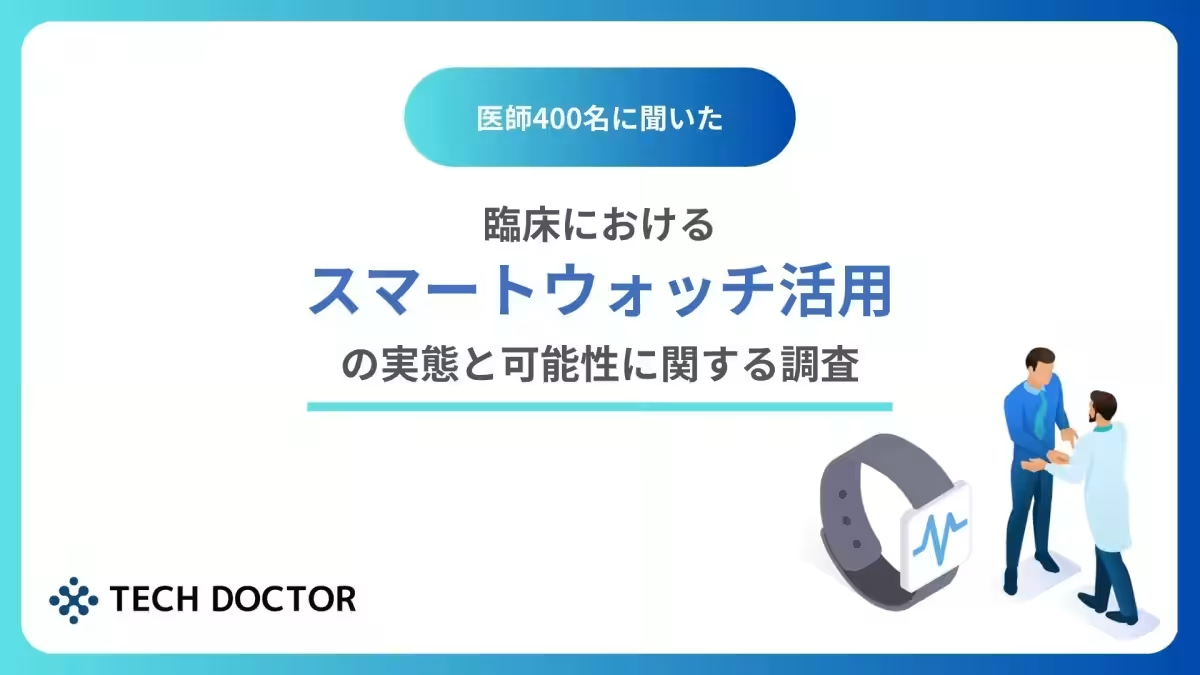
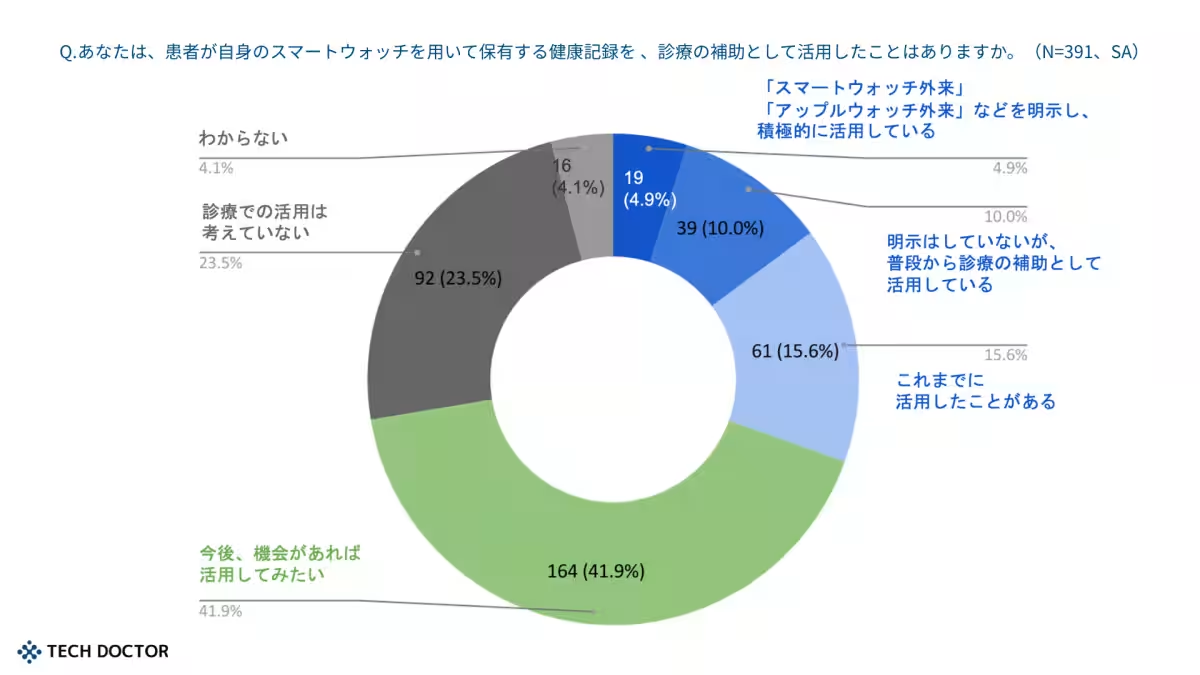
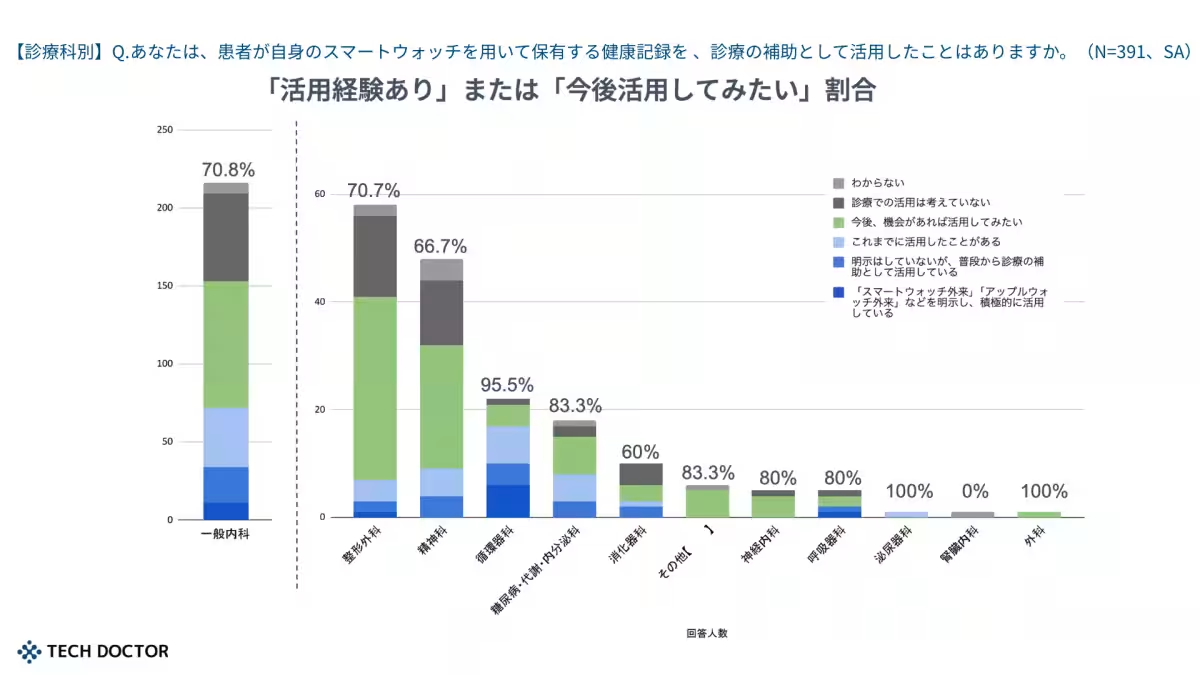
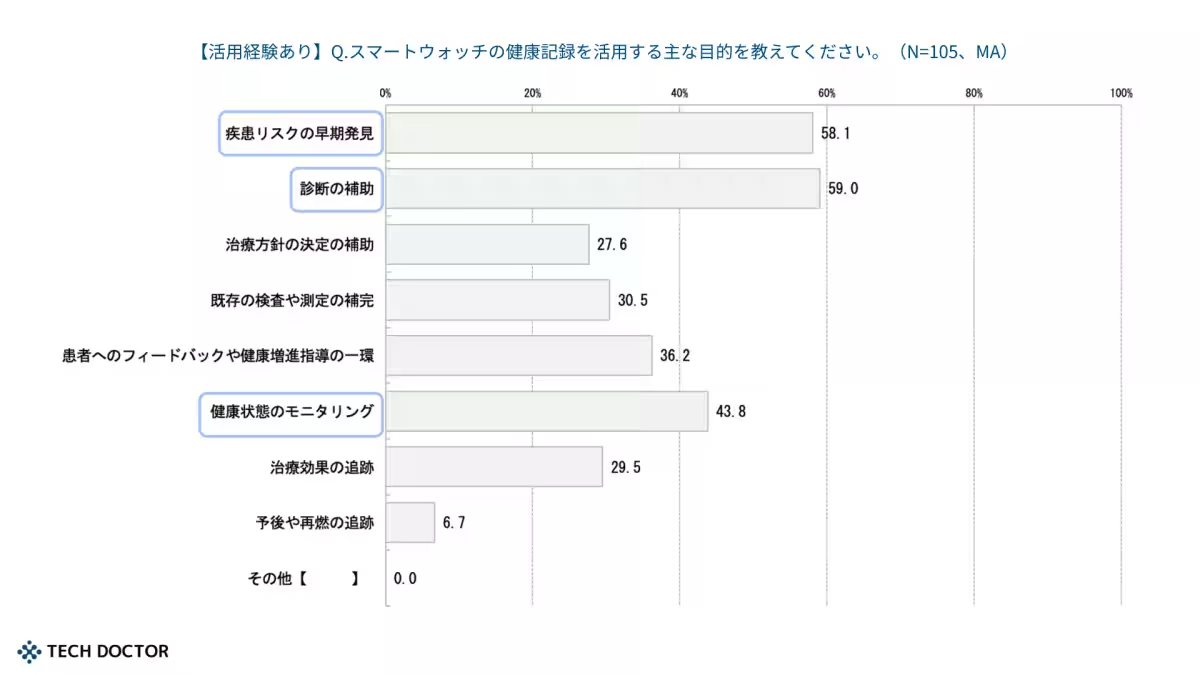
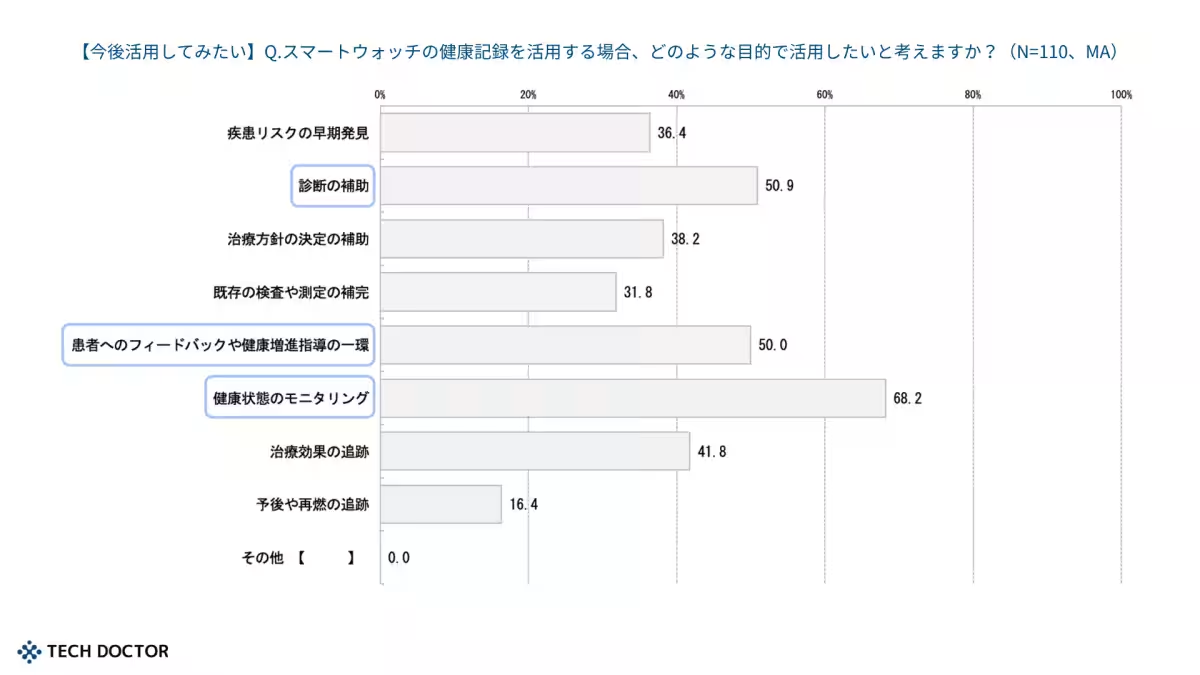
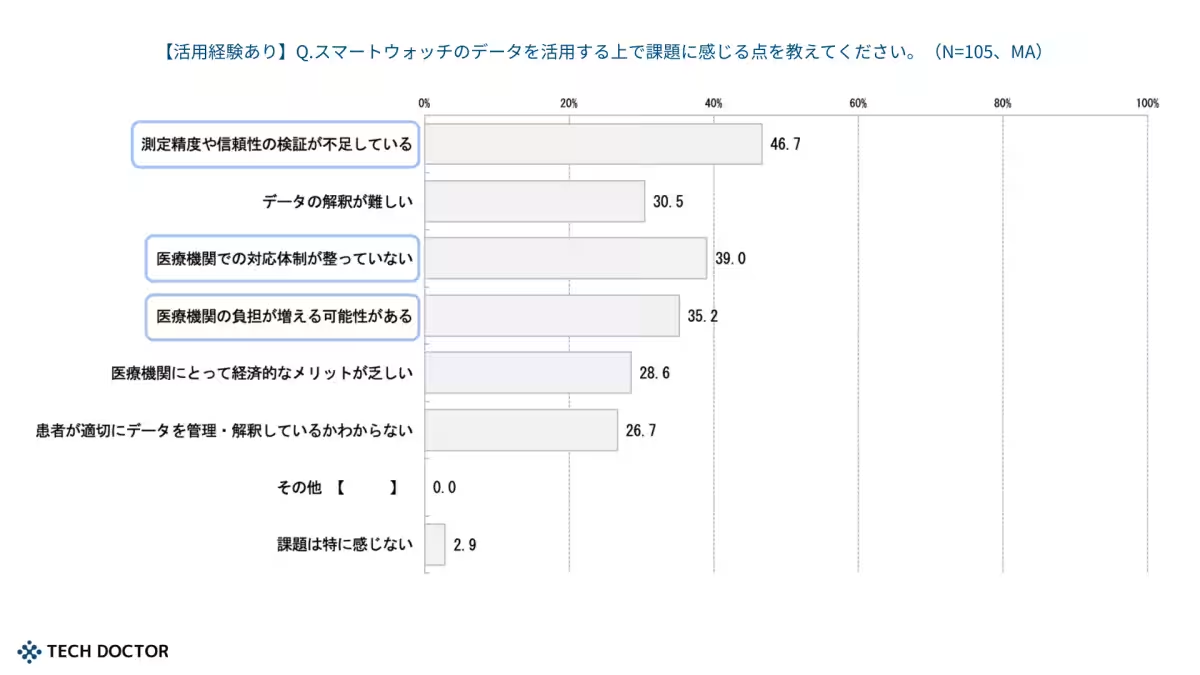
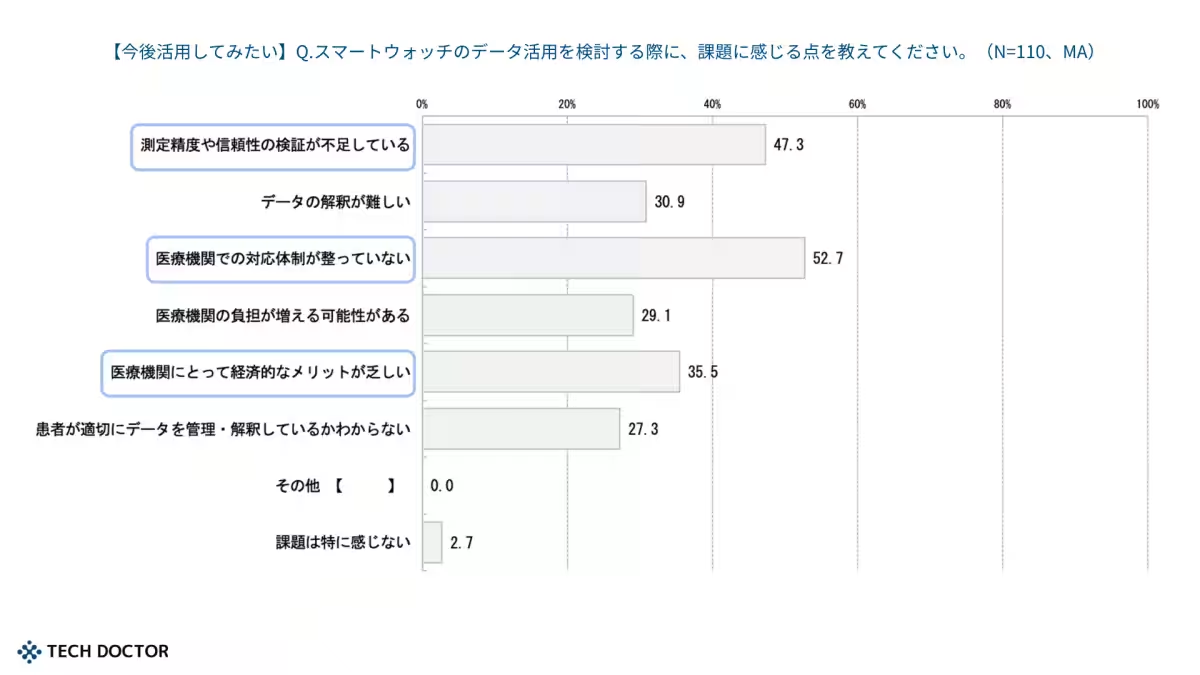
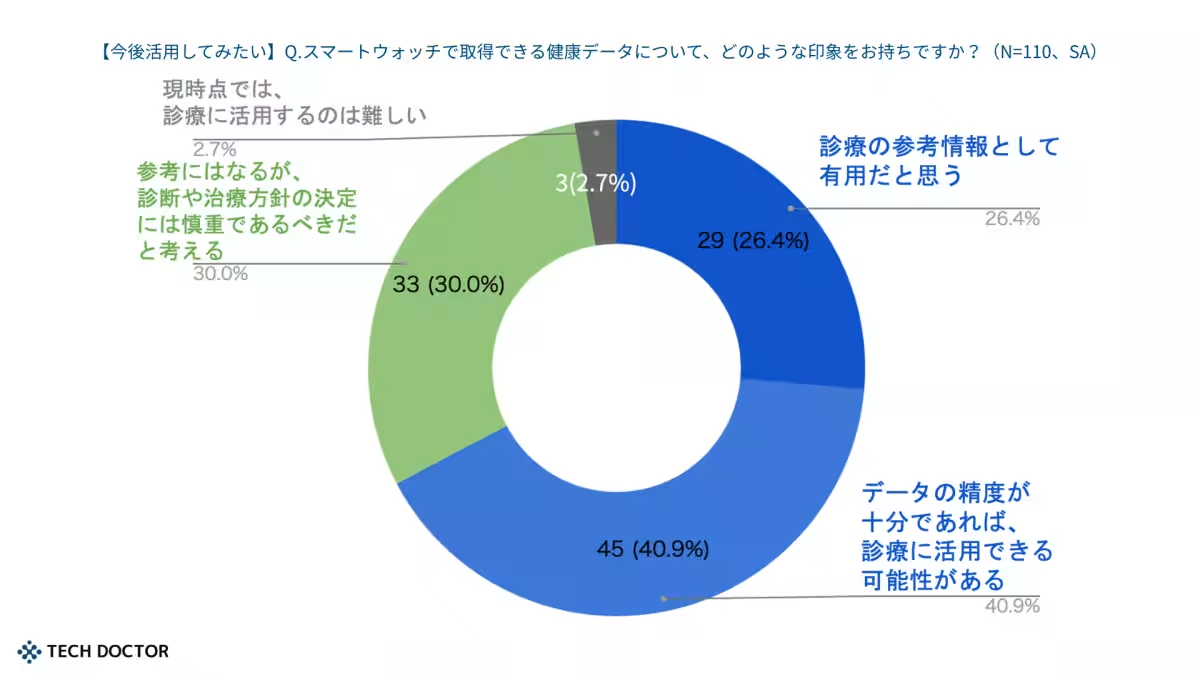
Topics Health)










【About Using Articles】
You can freely use the title and article content by linking to the page where the article is posted.
※ Images cannot be used.
【About Links】
Links are free to use.